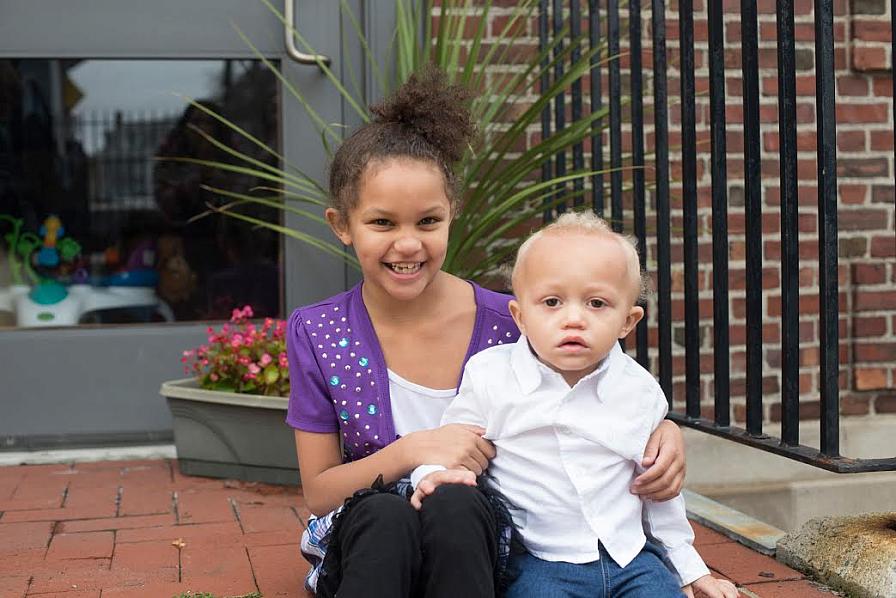By
Christine Kendall, Founder, SmarterGive
Published on
March 29, 2017
Christine Kendall of the Gisela B. Hogan Foundation shares her perspective on being a Social Issue Track Partner
Children from Julie’s Family Learning Program, a 2016-2017 Social Innovator supported by the Gisela B. Hogan Foundation, the Social Issue Track Partner
The Social Innovation Forum invited Christine Kendall, an expert in high impact philanthropy and the Founder of SmarterGive, to share the Gisela B. Hogan Foundation's experience as a 2016-2017 Social Issue Track Partner.
Over the past year, the Gisela B. Hogan Foundation has had the pleasure of working alongside the Social Innovation Forum as a sponsor of the track, “Addressing Adversity in Early Childhood.” Early childhood is a new area of focus for our foundation, and as we learned about the space, we were shocked to find that when compared to many other spaces (e.g., after school programs) early childhood is not nearly as robust. There is a real lack of funders focused on the issue and in turn a limited number of organizations who focus on early childhood. This was a grave concern for us, because early childhood is the most important time in the development of a child’s mind.
We felt that as we continued to learn more about the early childhood space, SIF would be a great way to support a great organization and begin to create some additional capacity in the space.
Toxic stressors such as economic hardship, a parent with drug/alcohol abuse, and exposure to violence can have profound negative impacts on the development of a child’s brain which leads to poor health and development over the entire lifetime of a child. Children that do not experience strong early supports are already behind by the time they reach kindergarten. We felt that, as we continued to learn more about the early childhood space, SIF would be a great way to support a great organization and begin to create some additional capacity in the space. In so many ways the investment in SIF exceeded our expectations; it has been a fantastic investment that has catalyzed our grantmaking in many ways.
- Knowledge Development—While we started our work by doing a landscape assessment of the early childhood field in Boston, our work with SIF really helped us to go even deeper on our assessment. We were introduced to many experts in the field of early childhood, and in many ways, these experts were able to confirm some of our initial hypotheses about the needs and gaps in the early childhood space. They also added color and new thinking to our hypotheses so that, in the following year, we were well positioned to deeply understand the needs of the market and felt like we had a springboard for our grantmaking strategy going forward.
- Organizational Knowledge—We also gained a much deeper understanding of many individual organizations in the field of early childhood. We were introduced to organizations that we had not previously seen or heard of. We saw their strategies and financials, and had detailed conversations with many of them. Because we now had a deeper understanding of the field and many of the individual organizations within it, we were ready to provide grants and push forward a robust early childhood agenda. In 2017 we provided funding for three of the organizations we were introduced to through the SIF process. None of these was the Social Innovator selected on the track, but organizations we met, and loved, through the process.
- Field Development—One of our initial concerns about the early childhood space in greater Boston was that while there are profound issues and needs surrounding the needs of young children, it does not seem to garner the attention and publicity that other areas can grab. How often do you hear about toxic stress in young children versus kids graduating from high school and job readiness? Yet ages 0-3 are the most formative when it comes to brain development and the architecture of the brain. We want people to be paying attention to young children as well and to know about these issues. With its many well-publicized events and deep relationship with the greater Boston social sector, SIF offered us a way to start doing this work. When SIF publicized its tracks and events, many people got to read about our track on early childhood and learn a little more.
- Capacity Support—I would be remiss not to mention the fantastic organization, Julie’s Family Learning Program, that was selected as the 2016-2017 Social Innovator on our track. Julie’s is an example of an organization that is doing so many things right for young children in high need; they are an organization that is ensuring that young children get early support so that by the time they arrive in kindergarten they are ready to learn and thrive. Yet, Julie’s has been "head’s down" in their work, and they have had little capacity as an organization to talk about what they do, build their funder base, or measure their impact. Our work with SIF allows us to help build that organizational capacity; capacity that is desperately needed in the field of early childhood.
As a funder, we have found that the experience with SIF has been far deeper than simply supporting a track and a great organization. We believe our work with them has helped us to catalyze our funding strategy and hopefully to begin to change the field of early childhood in Boston.
Interested in Exploring Social Issue Track Partnership?
We are actively recruiting Social Issue Track Partners for the 2017-2018 program year. Please email Carolyn Shaughnessy at cshaughnessy@socialinnovationforum.org to learn more about the process, timeline, and benefits of partnering with the Social Innovation Forum on a Social Issue Track.

